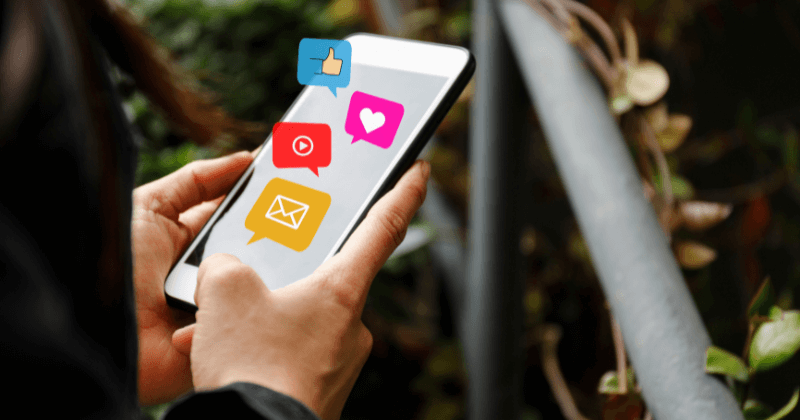SMX Advanced Opening Keynote: Kevin Johnson – Microsoft
Hey kids, it’s time to kick off another SMX. This time we not only have bagels and orange juice but there are power outlets in the front row. It’s like blogger heaven! Getting us started will be Kevin Johnson, president of Microsoft’s Platform & Services Division.
Before Kevin starts, Danny is going to give us a quick talk. He calls it the “hangover break”. He’s wearing crazy-colored socks and thanking people. Danny says he got Microsoft a little gift – Yahoo is waiting out back. Hee! Danny’s now making fun of the bloggers. He calls out me and Tamar and Marty. Okay, time for the good stuff.
Kevin says that Microsoft is focused on four core businesses – desktop, enterprise business, the consumer electronics business and the online business.
At the center of online is the concept of the advertising platform. You think of search and display and the end-to-end platform. When you look at the ad platform, it’s about scale economics: The more inventory you get, the better it’s able to deliver. It’s a software problem. Microsoft believes they can bring value to the ad area because it’s about software and that’s something Microsoft knows about. It’s about what ads to serve, how to improve the buy/sell process, creating software that provides workflow and manages massive amounts of data. It’s involves a significant investment in capital. When you look at the industry, they believe it will be better served when there are N numbers of players and N is greater than one (hee). They’re looking to invest and to provide choice for advertisers, publishers and consumers.
They hope that through their investments, they’ll be able to play a significant role in creating choice. They think they have some unique value to bring.
Danny: Is there a danger that Google becomes so entrenched that you can’t pull away share?
Google is already entrenched. When you have a competitor like that you have to focus on disruptive ways to change the paradigm. That can be in the user experience, in the business model, in the distribution, etc. Their focus is how they can continue to innovate on the broad horizontal relevance of search. They’re going to amplify the areas where they look at verticals. They want to connect buyers and sellers. It’s a long-term investment.
Years ago they said they were going to get into the process of building servers, and they were told they’d never do it because they were a software company. People joke that Microsoft NT stood for Nice Try. When they look online, they’re going to take the same long term approach. They’re going to be thoughtful and recognize that they have an entrenched player. They’re going to deliver on innovation and grow their share and value to the market.
Danny: What is the most innovative and disruptive thing Microsoft has done?
Improvements in image search, video search, the integration of Tell Me on mobile, Farecast, etc. They’re changing the way people go from individual queries to a task. There are a lot of areas they can point to for innovative. With Cashback, they’re trying to change the business model. They want to reward consumers for shopping and do it in a way that’s good for the merchant and the advertiser. They’re trying to differentiate the product in a way that benefits advertisers.
Danny asks about the Cashback program. Have you had any results in where it’s going yet?
The team looks at it every day. They’re monitoring it and watching traffic and making sure that everything is working effectively. They’re on top of that on a real-time basis. Over a year ago, they had this concept that said search is about connecting the buyers with sellers. In the process you ask why the middle man keeps all the money. They’re looking for a way to reward users for their actions. The concept of Cashback has been around for a year. A year ago they tested the concept of consumer loyalty in search. They launched Live Search Club and saw a 2 or 3 points of share increase in a 60 day period. That led to them acquiring JellyFish. They think Cashback is one element of changing the business model.
[It concerns me how much hope they’re putting into Cashback. It’s not going anywhere.]
Danny: Are there any other kinds of loyalty programs we’re likely to see?
You’ll see loyal among three verticals – Entertainment, Commercial Intent, Reference – and on the broad horizontal. They’re focusing on all of those. The first wave that they’re going to amplify is Commercial Intent. Over the next year you’ll see much more focus on that. Cashback is a key pillar. As they learn, you’ll see that evolve. He expects to see Cashback evolve over a lot of new loyalty programs.
Danny: What’s the biggest obstacle to getting people to use your search product?
You have to recognize that the brand Google is a very strong brand. When users think of Google, they think of search. When you have an entrenched competitor you need to make your brand and your offering stand for something. They need to focus more on distribution. This week they announced their distribution deal with HP. As users try it, that user experience starts to create a brand image. Then you have to do the marketing that reinforces that brand image or brand perception.
Danny: What’s your top advantage?
They have great engineering resources. They have the opportunity to take the long term perspective. They’re going to deliver innovation in a way that is impactful for the consumer. By doing that they think when consumers think of product search or travel search, they think they should use them. They recognize that commercial intent queries make up 30 percent of the search queries but it makes up 80 percent of the revenue.
Danny: Google’s greatest advantage is their brand. What’s their weakness?
User experience hasn’t changed much. Any time you have some legacy experience, there’s some risk of change. That’s their Achilles heel. He wants Microsoft to think out of the box and do new things. They have teams constantly trying different ideas. They’re constantly measuring. He thinks there’s a new paradigm that users will wants and embrace, but it’s up to them to deliver.
[I love how Microsoft is suddenly the “underdog” and Google is the one stuck in its corporate ways.]
Danny: Why not go back to the MSN brand? People don’t seem to like Live.
Their marketing teams are focusing on the brand problem. They can deal with it more now that they’ve backed away from Yahoo. He acknowledges that they need to get that fixed. He asks Danny for suggestions. Heh.
Danny: In terms of the fixing, does fix mean change or build or what?
Fix means fix. If that means you have to change it, then change it. If that means build it, then build it. Fix means fix.
Danny tries to get some dirt on the Yahoo acquisition but Kevin’s not giving him any. It’s the same spiel we’ve been hearing for weeks. They made a bid, hoped Yahoo would find it fair, but now they’re moving on. They’ll see where the dialogue leads.
Danny: Back to distribution: the HP deal was a big win. What other places are you looking to make changes?
You think of distribution broadly. There are a variety of ways you can get distribution. They’re going to work the full range. Some ways are better than others. It’s a combination of distribution and good marketing. To get good marketing, you have to make your brand stand for something.
Danny: Do you think search is being over-credited for conversions happening online?
Search provides great line of sight metrics and analytics for the advertisers. What they’re trying to do with the Atlas institute is engagement mapping. They want to see how display and rich media ads are performing to provide advertisers the end-to-end view they need to balance their media mix. Everyone is interested in how they’re driving conversions. It also provides tools for search marketers to look at the broad set of investments that really drive what they want.
Danny: If search is a long term gain, one of the things I’d give Google credit for is Google Books. Then in September you rolled out Microsoft Books and Academic [Danny means Live Search Books–Susan] and then you took it away
It’s not gone. We’ve scanned millions of journal articles and books. We’re going to keep doing that. What we’ve done is say because of the advanced tools, it’s more efficient to have first party publishers doing that scanning themselves. Users are still going to be able to find them. We’re putting the publishers in control of their content. We’ll be there to help them with tools. The industry is maturing.
Danny was upset with Google’s DoubleClick acquisition, but Microsoft also has its own search company. Shouldn’t you do what Google did and split them off?
When we acquired aQuanitve it also included Avenue A | Razorfish. They’re operating it at arm’s length. The ad platform is there to serve publishers and it’s there to serve advertisers. They think running those things in conjunction help them to run their ad platform better.
Danny: What’s Microsoft’s tagline?
In the online world we’re investing to create a world class ad platform. They’re investing in that in a way that provides the industry choice.
Danny says that’s not a tagline. In 4 or 5 words, what is Microsoft about?
They’re a company that believes in software plus services.
Danny: How do you define success?’
Getting more and more publishers and more and more inventory. They’ve had success in that but it’s been in things other than search. They really need to increase search. To him success is if they can carve out the differentiation and make the brand stand for something related to commercial intent.
Question and Answer
What improvements are going to made to adCenter? Can we get an offline editor?
Last September, he spent a week in NY visiting search marketers. The feedback fell into buckets – make your tools easier, it takes too long to get keywords into the system and more inventory/share of search. That was the feedback. With adCenter, they’ve continued to make improvements. This week they’ll announce an adCenter offline tool. That’s just one step in the process. Visit the Microsoft booth for an invitation to the editor.
When I think of search I think of Microsoft as The Man and Google as a way to get at The Man, how do you plan to overcome that perception?
Google’s entrenched. In any industry, choice is good. At the end of the day you have to deliver a great product. If you do that, users will use your product. They have to grow their market share and they’ll do that by innovating.

LEAVE A REPLY









